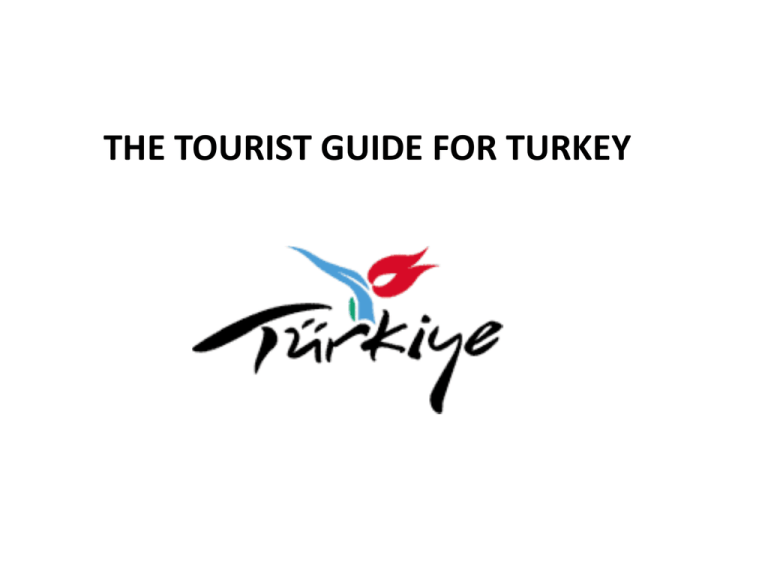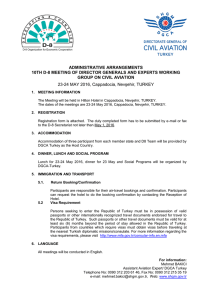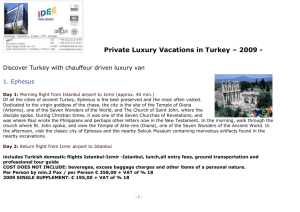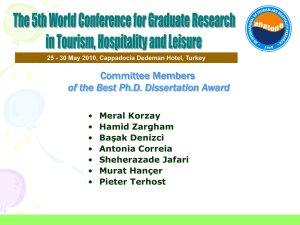Nevşehir
advertisement

THE TOURIST GUIDE FOR TURKEY 1. Geographical positioning Nevşehir is in the central region of Turkey. 2. Number of inhabitants Acıgöl(Our town) : 6200 Nevşehir : 117 890 Our town name is Acıgöl in the west of Nevşehir. 3. Climate Cappadocia has a markedly continental climate, with hot dry summers and cold snowy winters. The average temperature is +23 deg.C (73 F) in summer and -2 deg.C (28 F) in winter. Rainfall occurs mostly during the spring and autumn. The hottest months are July and August, the coldest months are January and February. 4. Touristic objectives Ancient Region of Anatolia Cappadocia (Nevşehir) 4. Touristic objectives The area is a popular tourist destination, as it has many areas with unique geological, historic, and cultural features. The most important towns and destinations in Cappadocia are Urgup, Goreme, Ihlara Valley, Selime, Guzelyurt, Uchisar, Avanos, and Zelve. Among the underground cities worth seeing are Derinkuyu, Kaymakli, Gaziemir, and Ozkanak. The best historic mansions and cave houses for tourist stays are in Urgup, Goreme, Guzelyurt, and Uchisar. Hot-air ballooning is very popular in Cappadocia every earlier mornings. 4. Touristic objectives 5. Ways of access As you know cappadocia is not a city name, Cappadocia is an ancient area. If you want to Cappadocia area of Turkey you can use Kayseri Erkilet Airport , Nevsehir Kapadokya Airport or Ankara Esenboğa Airport. Nevsehir Airport is 40 km. Kayseri Airport is 80 km. Ankara Esenboğa Airport 270 km. ASR Erkilet International Airport - Kayseri NAV Kapadokya International Airport – Nevsehir ESB Esenboga Airport - Ankara You can find flight informations official web sites of that airports. www.kayseri.dhmi.gov.tr www.kapadokya.dhmi.gov.tr www.esenbogaairport.com 6. Costs Hotel costs : 1 night - breakfast included = 30€ - 100€ Meal costs : Breakfast = 5€ Dinner = 8€ - 15€ 7. Communications international phone calls : 5 minutes = 1 € internet is free in hotels…. 8. Exchange rate • 1 € (Euro) = 2,2 Türk Lira 9. History • Cappadocia was known as Hatti in the late Bronze Age, and was the homeland of the Hittite power centred at Hattusa. After the fall of the Hittite Empire, with the decline of the Syro-Cappadocians (Mushki) after their defeat by the Lydian king Croesus in the 6th century, Cappadocia was ruled by a sort of feudal aristocracy, dwelling in strong castles and keeping the peasants in a servile condition, which later made them apt for foreign slavery. It was included in the third Persian satrapy in the division established by Darius, but continued to be governed by rulers of its own, none apparently supreme over the whole country and all more or less tributaries of the Great King. 10 .Presentation of the school











